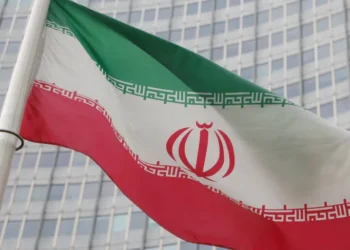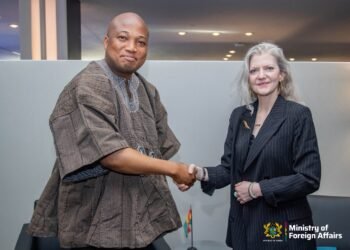Ghana has committed to achieving universal electricity access by 2030, joining 16 other African nations in signing on to National Energy Compacts under the World Bank and African Development Bank-led Mission 300 initiative.
The pledge, announced at the Bloomberg Philanthropies Global Forum, underscores Ghana’s determination to make energy the cornerstone of its development agenda.
President John Mahama made the pledge during the Bloomberg Philanthropies Global Forum, stressing that access to power remains central to Ghana’s broader development ambitions.
“Ghana believes universal energy access is key to empowering businesses, reducing poverty, and creating equal opportunities.
“This goal can only be achieved through strong government–private sector partnerships, supported by an enabling environment for sustainable investment.”
President John Mahama
Mission 300: Lighting Up Africa
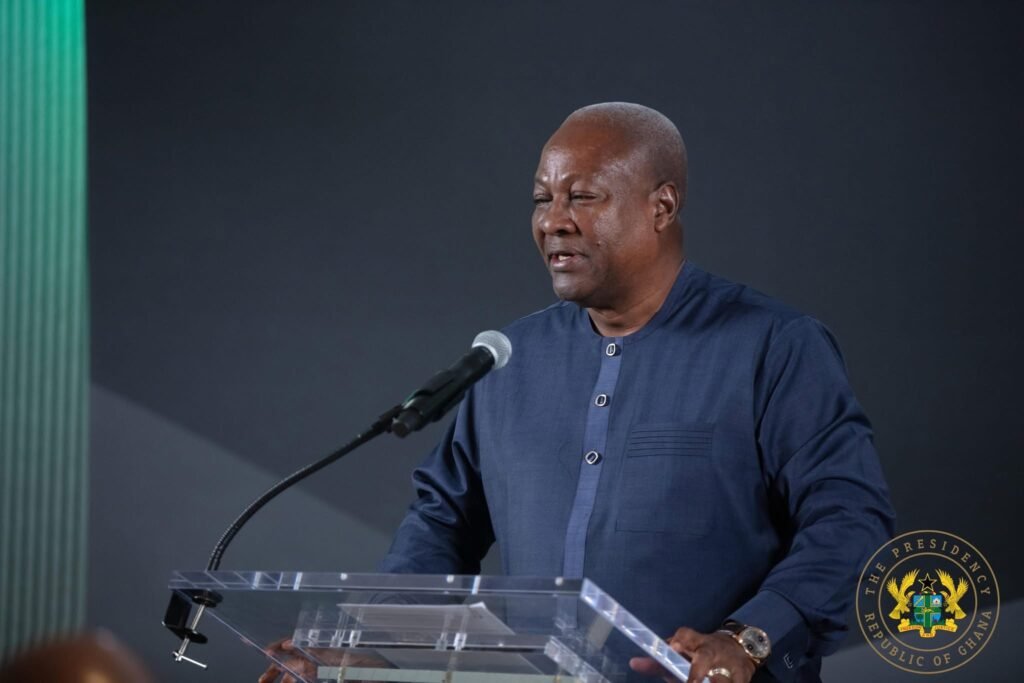
Mission 300 has already delivered tangible progress. Since its launch, 30 million Africans have gained electricity access, with an additional 100 million connections currently underway.
The initiative not only provides targets but also sets out detailed National Energy Compacts blueprints designed to guide investment, policy reform, and innovation across the power sector.
Ghana’s commitment reflects a growing momentum across the continent. The program is supported by the World Bank and the African Development Bank (AfDB), both of which describe it as a transformative vehicle for economic growth and poverty reduction.
By aligning governments, development partners, and the private sector, Mission 300 aims to fast-track access to affordable, sustainable energy.
World Bank President Ajay Banga described the program as a turning point for Africa.
“Electricity is the bedrock of jobs, opportunity, and economic growth.
“That’s why Mission 300 is more than a target, it is forging enduring reforms that slash costs, strengthen utilities, and draw in private investment.”
World Bank President Ajay Banga
AfDB President Dr. Sidi Ould Tah echoed that sentiment, calling energy the single most powerful catalyst for enterprise.
“Reliable, affordable power is the fastest multiplier for small and medium enterprises, agro-processing, digital work, and industrial value-addition.
“Give a young entrepreneur power, and you’ve given them a paycheck.”
AfDB President Dr. Sidi Ould Tah
At the Bloomberg Philanthropies Global Forum, national Energy Compacts were endorsed by several countries.
These practical blueprints guide public spending, trigger reforms, and attract private capital, with support coming from Benin, Botswana, Burundi, Cameroon, Comoros, the Republic of the Congo, Ethiopia, Gambia, Ghana, Guinea, Kenya, Lesotho, Mozambique, Namibia, São Tomé and Principe, Sierra Leone, and Togo.
A Continent-Wide Push
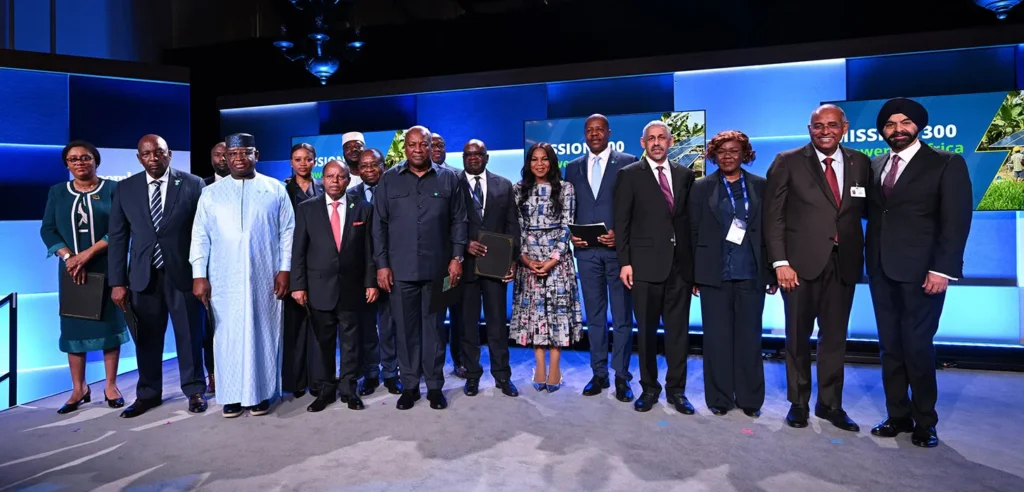
Ghana is not alone in charting a bold course toward universal access. At the Global Forum, several African leaders outlined their own energy compacts, underscoring the scale and diversity of commitments across the continent.
Botswana’s President Duma Boko pledged to ensure “accessible, reliable and affordable energy as a basic human need” to drive job creation and economic transformation.
Cameroon’s President Paul Biya highlighted reforms to expand renewable energy use and promote a low-carbon future, while the Republic of Congo’s President Denis Sassou Nguesso pointed to his country’s untapped hydroelectric potential.
“With a capacity of 27,000 MW, our hydro resources could not only deliver universal access at home but also export surplus power sufficient to cover more than one-third of Africa’s electricity needs.”
Republic of Congo’s President Denis Sassou Nguesso
Ethiopia’s President Taye Atske Selassie emphasized regional power integration as a way to boost efficiency and reliability, while The Gambia’s President Adama Barrow linked electrification to broader reforms in infrastructure and governance.
In East Africa, Kenya’s President William Ruto positioned clean power at the heart of his Bottom-Up Economic Transformation Agenda, while Mozambique’s President Daniel Chapo described his nation’s ambition to emerge as a regional energy powerhouse.
Sierra Leone’s President Julius Maada Bio went even further, calling his compact “the most ambitious energy infrastructure initiative ever developed” for the country.
Ghana’s Development Outlook
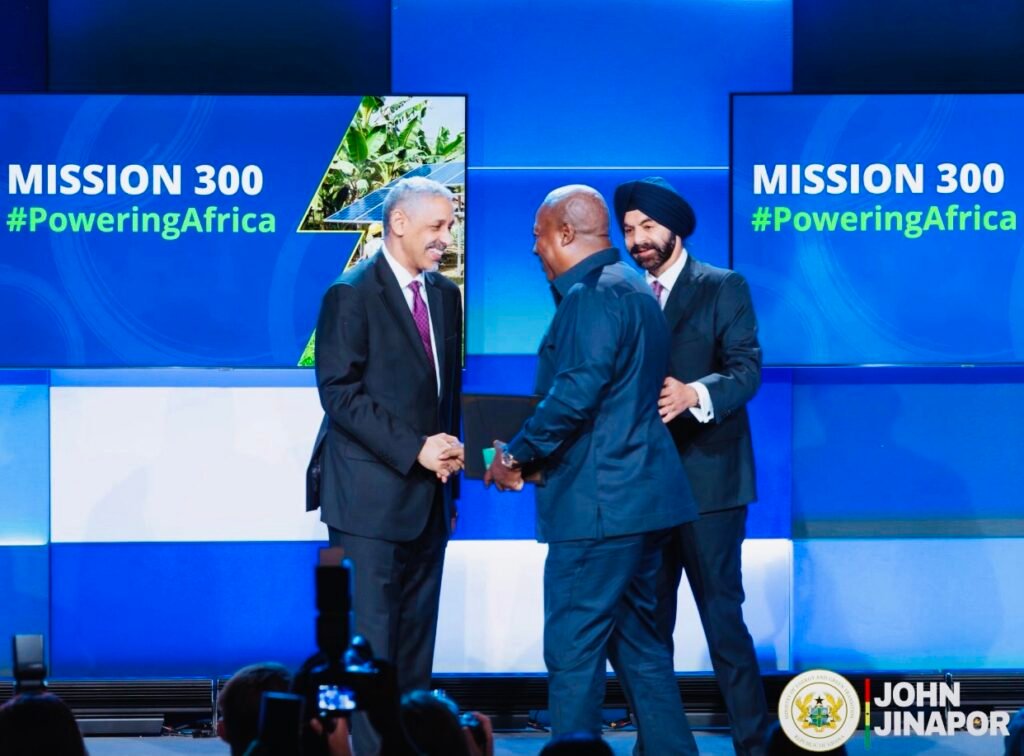
For Ghana, universal electricity access by 2030 is not merely a target—it is tied to its larger national vision of inclusive growth.
The plan also supports the country’s wider industrialization goals, particularly in manufacturing, agro-processing, and digital services, sectors that have been constrained by inadequate power supply in the past.
President Mahama’s call for sustainable investment highlights the role of international partnerships in achieving these ambitious goals.
With billions of dollars in financing and policy backing from global development banks, Ghana is positioning itself as a frontrunner in Africa’s electricity expansion drive.
As the September 2030 deadline approaches, Ghana and its peers will face the challenge of turning pledges into projects.
Meeting the universal access goal will require extensive grid expansion, investment in renewables, and policies that balance affordability with financial sustainability for utilities.
But optimism remains high. With more than a dozen African nations now backing the Energy Compacts, the continent is moving closer to breaking one of the biggest barriers to its development energy poverty.
For Ghana, the promise of power for all within the next seven years represents more than an infrastructure project. It is a pledge to light homes, fuel businesses, and unlock the potential of millions of citizens.
READ ALSO: Market Cheers as Ghana’s Treasury Auction Breaks Four-Week Drought with 15.8% Oversubscription


